Share

Tech and Science Daily | The Standard
Is the UK’s power network in trouble?
Season 1
•
A major fire at a London electrical substation this week, along with a power blackout in Spain and Portugal, has raised fresh questions about the stability of the UK's power network?
We spoke to John Loughhead, Professor of Clean Energy at the University of Birmingham and Fellow and Former President at the Institution of Engineering and Technology. Click here to hear the full interview.
A doctor contemplating eye removal surgery has her sight restored thanks to a first-of-its-kind genomics lab… just in time for her wedding…
Plus, is your energy meter among 300,000 set to be switched off on June 30?
Also in this episode:
- Which London airport has installed a bird hide to resemble an air traffic control tower?
- Has the recorder finally lost popularity in music class?
- ‘Fart walking can help long term health’, say physicians
More episodes
View all episodes

London councils cyber incident update, London quantum cluster, UKRI boosts games and AI, plus Revolut Mobile and Alexa+ on the web
05:30||Season 1Today on Tech and Science Daily from The Standard: the latest on the Westminster and Kensington & Chelsea cyber incident, a quantum year-end update from Imperial and the London Quantum Cluster, and UKRI’s shift toward growth funding — including video games. Plus, Revolut’s new UK mobile service, Alexa+ arriving on the web, and a couple of practical gaming and headset updates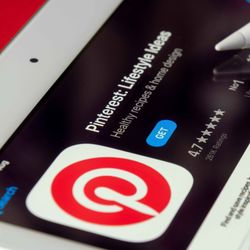
Pinterest Predicts 2026 interview, Ofcom probes EE and Three outages, and London robots that can “feel” — Tech and Science Daily from The Standard
12:03||Season 1Ofcom investigates BT’s EE and Three after major call outages affected emergency services, plus King’s College London research aiming to give robots a sense of touch. We also hear from Pinterest’s Sidney Stanback on the Pinterest Predicts 2026 report and how trend forecasting is speeding up, then cover the UK’s quantum push with Google’s Willow processor, an autonomous spacecraft rendezvous milestone, a UK-backed plan to produce lead-212 radiotherapy isotopes from reprocessed uranium, a warning on budget smartphone pricing pressures in 2026, and a quick gaming performance update from Capcom. For more, visit standard.co.uk.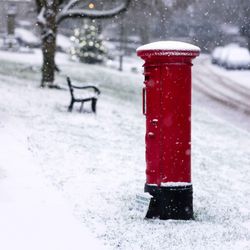
London Sea Level Rise AI Images, Lancet Countdown 2025 Climate Health Report, and Antarctica’s New Royal Mail Postbox
05:58||Season 1In today’s episode of Tech and Science Daily from The Standard, we start in London with AI visuals imagining what a six-metre sea level rise could mean for landmarks like Westminster and the Tower of London. Then we break down the Lancet Countdown 2025 findings on climate change and public health, from heat impacts to air pollution, and why it matters for cities like London. Plus, a lighter science story: researchers at Rothera Research Station in Antarctica get a brand-new Royal Mail postbox delivered via the RRS Sir David Attenborough. For more tech and science news, head to standard.co.uk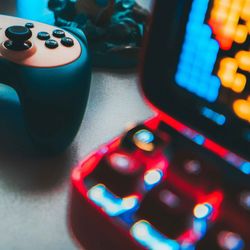
The Game Awards 2025 Winners & Biggest Reveals — Plus London ADHD Custody Study and UK Rail Timetable Change
08:49||Season 1Today we’re going big on The Game Awards 2025 — the winners, the indie sweep, and the announcements that just set up the next couple of years in gaming. Plus, we cover a major London custody screening study on undiagnosed ADHD, and the new UK rail timetable landing this weekend. For more, head to standard.co.uk.
Tinnitus sound therapy hope, December game releases, Which? Top 50 picks & major ocean conservation win
14:19||Season 1In this Friday episode of Tech and Science Daily from The Standard, we look at a new UK sound therapy that has reduced tinnitus loudness in trials and could one day be delivered by smartphones. We round up December 2025’s biggest new game releases before an interview with Which? editor Harry Rose on their Top 50 products of the year – including that headline-grabbing Asda ketchup ranking. We end on a good-news climate story, as a $24.5m Bezos Earth Fund package moves the world’s first cross-border marine biosphere reserve in the eastern Pacific a step closer to reality.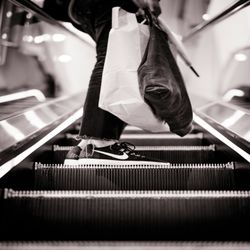
How AI search really picks winners: ChatGPT, LLMs and the future of retail discovery
14:38||Season 1As more of us ask ChatGPT what to buy — instead of Googling it — the rules of being discovered online are changing fast.In today’s episode, we dig into how large language models like ChatGPT, Claude and Perplexity are quietly becoming the new front door to retail. When an AI gives a single recommendation instead of a page of links, how does it choose who to trust, which brands to surface, and who gets left out completely?We're joined by Chris Donnelly, founder of Searchable – an agentic AI platform that shows businesses how they’re being read, ranked and recommended by LLMs. Chris explains how these models currently pick winners, why smaller brands can still compete, and what “Generative Engine Optimisation” actually means in practice.We also look at what this shift means for Christmas shopping, how retailers should prepare their data and content for AI-driven discovery, and what the future of search might look like over the next few years.For all the latest news, head to standard.co.uk.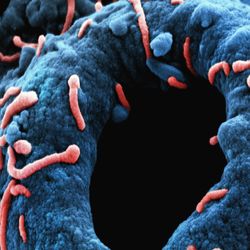
London “superflu” warning, Tube fare hike, UK satellite-to-mobile push & PlayStation 2025 Wrap-Up
08:52||Season 1On today’s Tech and Science Daily from The Standard, we look at NHS warnings over a record “superflu” wave hitting London and what it means for hospitals and daily life in the capital. We break down the 5.8% Tube fare rise coming next March and a new AI carers’ support trial in Richmond. After the break, we cover a fresh MIT study on how the brain and immune system team up to keep you in bed when you’re sick, PlayStation’s 2025 Wrap-Up gaming recap, and Samsung’s latest Android XR upgrade for its Galaxy XR headset. For more head to standard.co.uk.
London innovation fund, Geminid meteor shower & garlic mouthwash study – plus Claimit CEO interview
10:05||Season 1On today’s Tech and Science Daily from The Standard, we’re in London for the city’s share of a major innovation fund and a Royal Society summit on marine biodiversity, fishing and climate change, with a quick nod to the UK Biobank Scientific Conference in Westminster. We’re also joined by Andy Watson, co-founder and CEO of Claimit, to help us understand why lost parcels are costing businesses billions. After the interview, we chat the Geminid meteor shower over London and unpack a new study testing garlic mouthwash against standard antiseptics. For the latest news head to standard.co.uk.
Cloudflare outage, UCL air pollution study & December PS Plus games
09:28||Season 1On today’s Tech and Science Daily from The Standard, we break down new TfL lift tech for step-free travel, explain a major UCL study on how air pollution can weaken the benefits of exercise, and look at Cloudflare’s latest outage hitting LinkedIn and Zoom. We also cover a huge neutrino collaboration that could explain why the universe exists, December’s PlayStation Plus free games and upcoming Game Awards 2025, and Amazon’s new Alexa Plus scene-skipping feature for Fire TV.